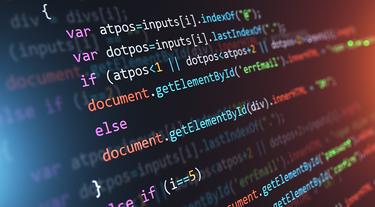How to Learn Coding from Scratch: Resources and Tips
Learning to code from scratch can be a challenging yet rewarding experience. Whether you're looking to switch careers or simply want to build your tech skills, understanding the fundamentals of coding is essential. In this guide, we'll explore practical tips and resources to help you get started with coding, covering various languages and approaches that cater to different learning styles and goals.
1. Understanding Why You Want to Code
Before diving into coding, it's crucial to identify your goals. Are you aiming for a career in software development, data science, or web design? Understanding your motivation will help guide your learning path and keep you focused. For a comprehensive overview of why learning to code is beneficial, check out this guide on why coding matters.
2. Choose the Right Programming Language
Choosing a suitable language depends on your goals. For web development, HTML, CSS, and JavaScript are great starting points. For data science, Python is highly recommended. Read more about how to choose the best programming language for beginners.
3. Start with Free Online Resources
There are numerous free platforms to start learning coding, including Codecademy, Coursera, and FreeCodeCamp. These resources provide interactive lessons that make learning engaging and accessible. To get started, explore these top websites for learning coding.
4. Enroll in Beginner-Friendly Courses
If you prefer structured learning, consider enrolling in beginner-friendly courses on platforms like Udemy, Pluralsight, or LinkedIn Learning. These courses offer step-by-step guidance, projects, and community support. Learn more about the best beginner coding courses on Udemy.
5. Practice Regularly with Small Projects
Consistent practice is key to mastering coding skills. Start with small projects like building a personal website, creating a simple game, or automating tasks. Use platforms like GitHub to find inspiration and collaborate with other developers. For project ideas, visit GitHub Explore.
6. Join Coding Communities
Engaging with coding communities such as Stack Overflow, Reddit’s r/learnprogramming, or Discord groups can provide valuable support and feedback. These communities are great for asking questions, finding mentorship, and staying motivated. Discover popular coding communities on Stack Overflow.
7. Build a Portfolio
Creating a portfolio is essential for showcasing your skills to potential employers. Start by adding all your projects, even the small ones. Over time, replace simpler projects with more complex ones that demonstrate your growth. Check out these tips on building an effective coding portfolio.
8. Practice Problem-Solving with Coding Challenges
Coding challenges are a great way to improve your problem-solving skills. Websites like HackerRank, LeetCode, and CodeSignal offer challenges tailored to various skill levels. Start with easy problems and gradually tackle more difficult ones. For a list of coding challenge platforms, visit HackerRank’s coding challenges.
9. Explore Advanced Learning Paths
Once you've mastered the basics, consider exploring advanced topics like algorithms, data structures, or machine learning. Platforms like Coursera and edX offer in-depth courses taught by industry experts. Explore advanced courses on Coursera’s computer science catalog.
10. Keep Up with Industry Trends
Technology evolves rapidly, and staying up-to-date is crucial. Follow blogs, podcasts, and YouTube channels dedicated to coding and technology. Sites like Medium, Dev.to, and GitHub are great places to keep up with the latest trends. Check out Dev.to for articles from developers.
11. Consider Getting Certified
Certifications can validate your skills and make you more attractive to employers. Popular certifications include Google’s Associate Android Developer and Microsoft’s Azure Developer Associate. Explore available certifications on Pluralsight.
12. Apply Your Skills in Real-World Scenarios
Applying your skills in real-world scenarios is one of the most effective ways to learn. Volunteer for coding projects, freelance, or contribute to open-source projects. To find open-source opportunities, visit Google Open Source.
13. Never Stop Learning
Coding is a lifelong learning journey. Always be curious, stay adaptable, and keep building your skills. The more you learn, the better you'll become. For continuous learning resources, check out CareerFoundry’s coding resources.
conclusion:Conclusion Embarking on the journey of learning to code from scratch can be daunting, but with the right resources and mindset, it’s entirely achievable. Remember to stay patient, practice regularly, and take advantage of the wealth of resources available to you. Whether you're looking to get into computer programming as a career or just want to understand the digital world better, your coding skills will open up a world of possibilities.


